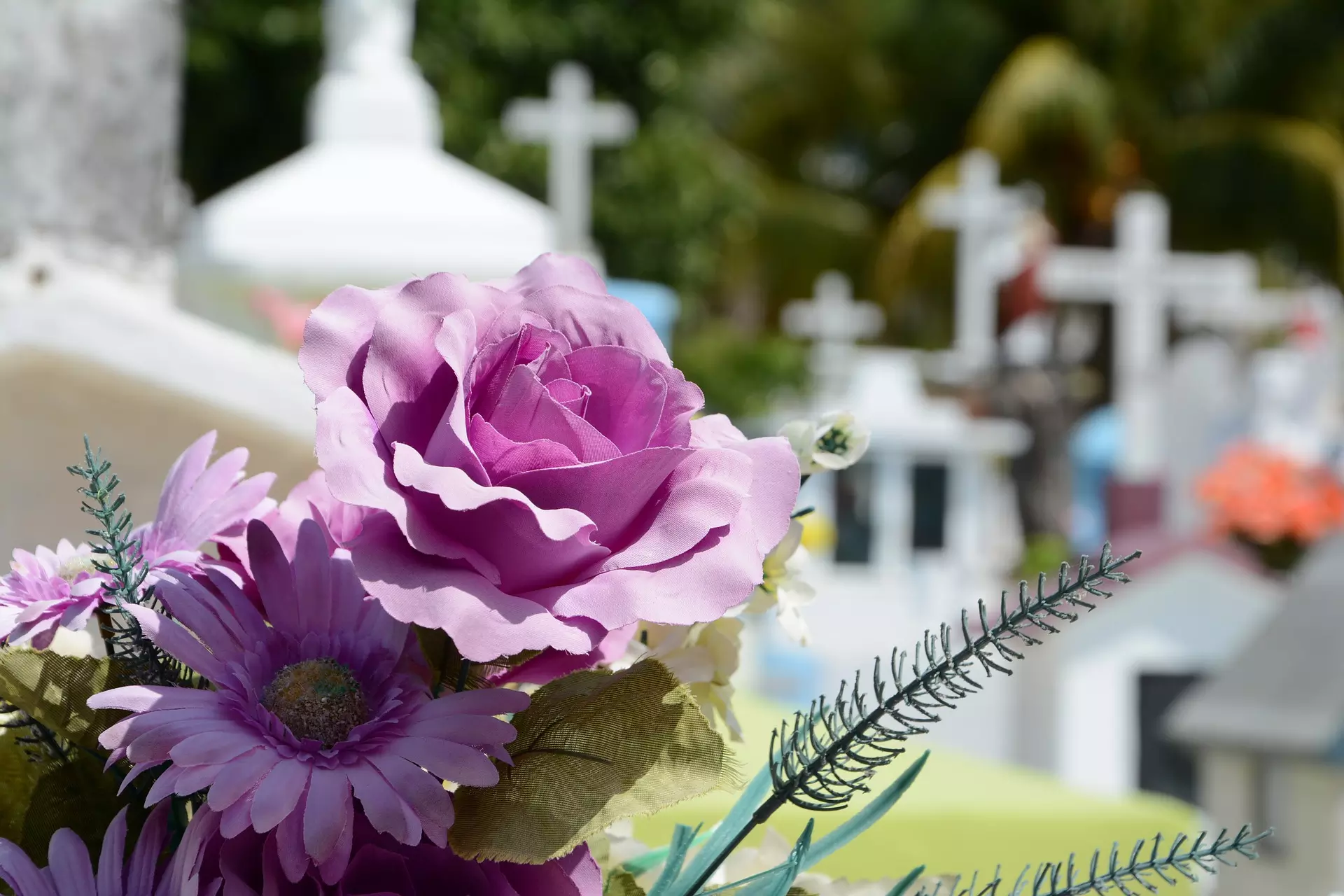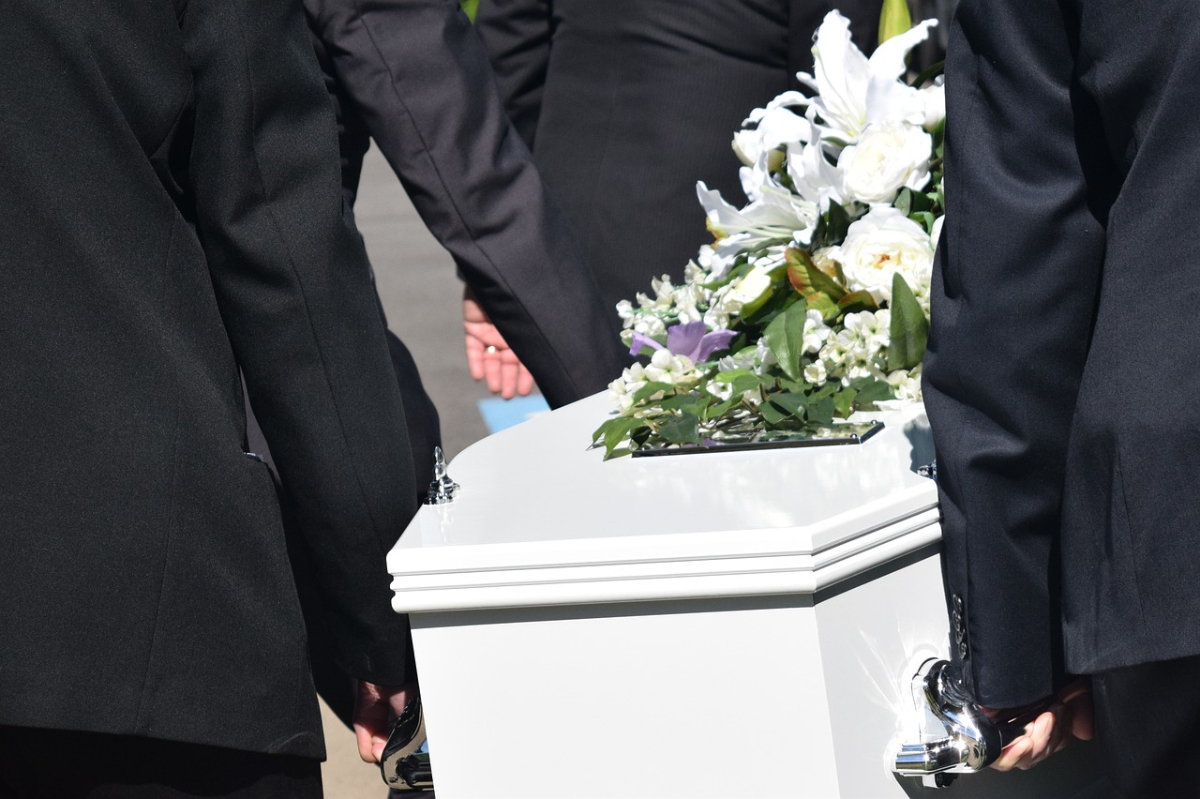Who legally has to pay for a funeral? This article looks at who is responsible for making funeral arrangements and how much an average funeral costs.
Who is responsible for making funeral arrangements?
In the majority of cases, the responsibility that comes with arranging a funeral will fall to the deceased's next of kin. The next of kin is identified as being the person who was the closest living relative to the deceased at the time of their death.
For example, a spouse, a child, or a grandchild. If you are unsure as to who is classed as the closest living relative, then there is an order of priority which is described in the Non-Contentious Probate Rules. The next of kin is the person who can be found at the top of the list.
Commonly, it is also the next of kin who pays the costs that come along with a funeral. Although in some cases, another plan is stated in the will of the person who has passed away, and this is done instead.
Who legally has to pay for a funeral?
Following a death, one of the important steps that need to take place is to find out whether the person left a will that named the executor. The executor can also be the next of kin, or it may be a person within the deceased's family. In some cases, it can even be a friend or professional.
In most cases, it is the executor's responsibility to arrange the funeral, cover all the costs of the funeral arrangements, and manage the estate after the death. Through gaining legal access to the estate of the person who has passed, the executor may be able to fund all the funeral costs by using any savings or assets that have been left behind.
In other cases, the deceased may have had a funeral plan or life insurance policy that can be used to cover the costs of the funeral. In situations where there are no funds that can be used to cover the funeral costs, then the local council can hold a public health funeral.
These are shorter but dignified services that will be arranged at a time and date that will be set by the local council. In most cases, these public health funerals are a last resort. Some families may be entitled to governmental support, or in other cases, they will be eligible for a payment plan.

How much does an average funeral cost?
Recent reports show that a funeral using a funeral direct costs around £3,837 on average.Depending on the specifics of the situation, the cost of these funerals can vary quite a lot.
This will depend on the location and the funeral arrangements. For example, in London, the quote for a funeral can cost as much as £2,315. But, of course, it is possible to have a meaningful and dignified funeral that can cost a lot less. One example of this is direct cremation.
These cost around £1,500, which is considerably less. The ceremony can then be organised to occur at your home. Another option is just organising the whole funeral yourself.
For Direct Cremation, the average cost is around £1,554. This includes collecting the deceased, a simple coffin, and the return of the ashes.
For cremation with the use of a funeral director, the average cost is around £3,290. This includes the collection and care of the deceased, a basic coffin, a hearse, and managing a straightforward service.
This does not include any kind of elaborate ceremony. It also includes any cremation fees and the fee for the cremation certificate, which will be provided by a doctor.
For a burial using a funeral director, the average cost is around £4,383. This includes the collection and care of the deceased, a basic coffin, a hearse, and the managing of a simple service. This does not include any kind of elaborate ceremony. This will also include the costs of the cremation fees and the minister fees.
What happens if you can't afford a funeral?
Your local council or hospital can arrange a Public Health Funeral if:
There are not enough funds in the estate to pay for it
There are no family members or friends available to arrange the funerals
In most cases, there is usually a cremation. You are free to attend the funeral, but the local council will decide the time and date of the event.The service is usually quite short, and extras such as flowers, cars and notices in the newspaper will not be included.
If you are already receiving certain benefits, then you can also apply for a Funeral Expenses Payment. This is a scheme where the government will help you to pay for the funeral.
Paying with a pre-paid funeral plan or insurance
There are some people who will have already arranged how the payment will work for their funeral. This usually comes in the form of a pre-paid funeral plan or funeral insurance.

What is a pre-paid funeral plan?
The person who has passed away may have pre-paid a funeral director or a specific funeral care company so they can have a particular type of funeral. This is named a funeral plan.
With a funeral plan, you are then locked into using that funeral director, one of many funeral directors from a pre-approved list, to arrange the funeral. We would recommend taking a look into what exactly is covered by the plan before you start making any specific arrangements.
It is common for funeral plans not to include every aspect and all the expenses of a funeral. This will mean that you will have to pay for some of the costs associated with the funeral yourself.
What is funeral insurance?
This is a form of insurance that is paid out as a fixed lump sum which should be enough to cover the costs of a funeral. This insurance can sometimes be known as the over-fifties plan. Once this lump sum is paid out, it can then be used to pay for any kind of funeral from any funeral director.
Of course, it is important that you check how much the lump sum is worth before you start making any funeral arrangements.
If the price of the funeral is higher than that of the lump sum, then you will need to pay for any extras.
How do I claim on a pre-paid funeral plan or funeral insurance?
Sadly, there is no centralised directory or place where you can check if a person who has passed away has insurance or a funeral plan.
If you are under the assumption that the deceased had one, then you need to check their papers and find a copy of the necessary information.
You should also check if this information is stored in their will. A family solicitor or the bank are also good places to check.
Paying with the bank account of the person who died
The person who has passed away may have left money in their bank account to cover the funds needed for their funeral. However, you will find that banks and building societies will usually freeze a person's account when they are informed of their death.
So you will need help with getting the money. You will need to speak with the deceased's executor or administrator of the estate in order to gain access to this money.
In some cases, though, it is possible to access this money without the help of others. At the bare minimum, you will need a copy of the deceased's death certificate and an invoice for all the funeral costs with your name printed on it. The bank or building society will likely also want to see some proof of identity from you.
Once this has been done, the bank can then pay all the essential funeral bills directly to the company that has provided the funeral service.It is not recommended that you try to access the person's accounts yourself, even if you have knowledge of their debit card or online banking details. You should speak to the bank first, or you can find yourself in legal trouble.
Independent Funeral Director in Ormskirk
Are you looking for funeral services in Ormskirk, Aughton, Burscough, Lancashire? If you want more information about our independent funeral director to find out more.
